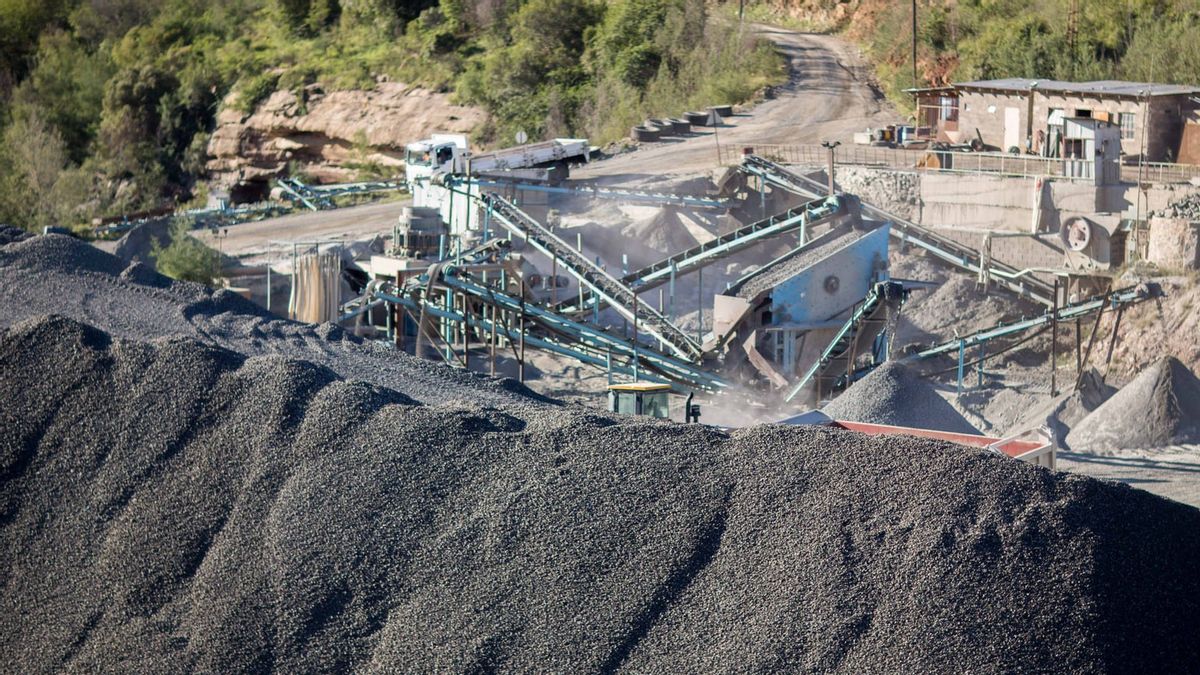JAKARTA - Public policy observer Agus Pambagio welcomes the possibility that fly ash and solid ash (FABA) from coal from coal-fired power plants (PLTU) can be reprocessed with new technology.
"FABA is large in number and difficult to control so that it is included in the B3 waste category. But as technology develops, it turns out that FABA can be reprocessed into something useful," said Agus as quoted by Antara, Wednesday, March 17.
He assessed that the policy to release FABA waste into the category of non-hazardous and toxic (non-B3) materials could be a new economic opportunity, because the waste can be processed as raw material for infrastructure.
In addition, the removal of FABA from the list of B3 waste can also narrow the space for the mafia who "play" in waste management and have the potential to harm PLTU managers.
"The waste management site in Java, if the PLTU is in Papua or Sulawesi, requires a lot of money. In fact, to manage FABA it also requires the creation of an Environmental Impact Analysis (AMDAL) document at a cost of up to Rp. 400 million, here mafia practices emerge," he said.
FABA researcher from the Sepuluh Nopember Institute of Technology (ITS) Surabaya Januarti Jaya Ekaputri added that the policy of removing FABA from the list of B3 waste could open up the use of waste for infrastructure and agriculture.
According to him, FABA which is properly processed according to government standards can be used as raw material for the manufacture of bricks, cement, corn blocks, and the like, even as fertilizer in several developed countries.
However, he acknowledged that FABA regulations and supervision still require strict inspection because this waste has a dangerous effect if it is managed in large quantities and the quality is not controlled.
"For example, we think of rice. Rice is not dangerous. But we are forced to eat 50 kilograms per sitting, it becomes dangerous. Now the question is whether rice is poisonous? Rice is not poisonous. But if in large quantities it may be dangerous," he said.
Previously, the Director General of Waste Management, Waste and Hazardous Toxic Materials (PSLB3), Rosa Vivien Ratnawati, ensured that there was law enforcement in the event of a violation in the coal ash waste management of PLTU.
"If there is a violation, law enforcement can be carried out. The public can still sue for compensation, because it is protected by the state," said Director General of PSLB3 of the Ministry of Environment and Forestry (KLHK), Vivien in a virtual press conference, Monday, March 16.
Vivien emphasized that the inclusion of fly ash (fly ash) and bottom ash (solid ash) or what is known as FABA from coal burning in PLTU in the non-B3 category will not eliminate regulatory and management standards.
The Ministry of Environment and Forestry has compiled a non-B3 waste regulation which includes waste reduction, storage, utilization, landfilling, environmental pollution prevention and reporting of non-B3 waste activities.
Regarding the non-B3 management plan, the new regulation can refer to the stipulation of the Minister of Environment and Forestry, which is further outlined in the Environmental Approval. Non-B3 waste must also be registered in detail in the agreement, although its management does not require technical approval.
The English, Chinese, Japanese, Arabic, and French versions are automatically generated by the AI. So there may still be inaccuracies in translating, please always see Indonesian as our main language. (system supported by DigitalSiber.id)









